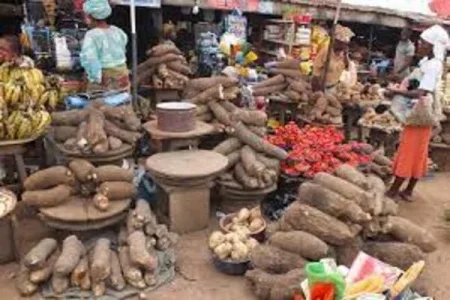
As economic turmoil intensifies, the National Bureau of Statistics (NBS) released its December 2023 Consumer Price Index (CPI) on Monday afternoon, revealing a shocking surge in Nigeria's inflation rate to 28.9%.
In comparison to November 2023's 28.20%, this new figure represents a significant increase of 0.72% points, marking a worrying trend in the country's economic stability. The CPI, which measures the rate of change in the prices of goods and services, paints a stark picture of the challenges facing the Nigerian population.
Food inflation has also witnessed a substantial spike, reaching 33.93% on a year-on-year basis, a startling 10.18% points higher than December 2022. The surge in food prices is attributed to increases in the costs of bread and cereals, oil and fat, potatoes, yam and other tubers, fish, meat, fruit, milk, cheese, and eggs, as reported by the NBS.
President Bola Tinubu's declaration of a state of emergency on food security six months ago now echoes with renewed urgency. The rising food inflation underscores the need for a collaborative effort between the Ministry of Agriculture and the Ministry of Water Resources to ensure consistent irrigation of farmlands, guaranteeing year-round food production.
"There must be an urgent synergy between the Ministry of Agriculture and the Ministry of Water Resources to ensure adequate irrigation of farmlands and to guarantee that food is produced all year round," emphasized President Tinubu during the state of emergency declaration. He further outlined plans for a National Commodity Board, designed to review and assess food prices continually, maintaining a strategic food reserve as a price stabilization mechanism for critical grains and other essential food items. Through this initiative, the government aims to moderate spikes and dips in food prices, offering a potential solution to the escalating crisis.
As Nigeria grapples with the consequences of this soaring inflation, the nation awaits comprehensive strategies and collaborative efforts to stabilize the economy, ensure food security, and alleviate the burden on its citizens.




